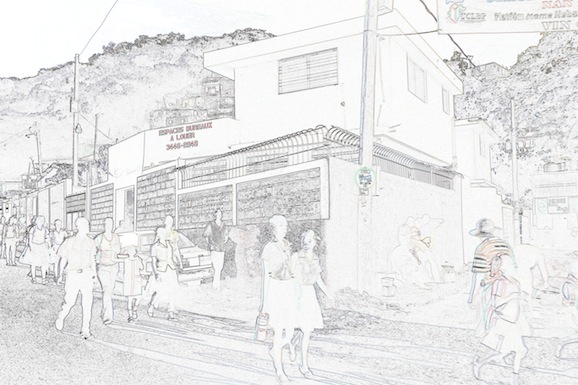By Ilio Durandis
CJ Contributor
TWO YEARS ago, as I was contemplating the different ways to contribute to a new Haiti, an idea to bring bioscience education and training to Haiti emerged.
In order to move past a simple idea to reality, the support and collaboration of many would be needed to make it happen.
The idea to educate, train and prepare young Haitian professionals in the biosciences is not only an innovation in Haitian education, but it can also serve an important purpose to address some real issues facing the country, from lack of quality control of raw materials to food safety. The potential impact of bioscience education in Haiti is limitless.
The Haitian Bioscience Initiative (HBI) was born out of a passion to make a difference in the lives of young Haitians.
Its main goal is not simply to transfer the knowledge of biosciences, but rather to help render Haitian professionals employable as lab technicians and future researchers who can become leaders in creating a whole set of new industries in Haiti.
Last month, the long-awaited pilot was launched at Ecole Superieure d’Infotronique d’Haiti. This pilot would not have been possible without the unconditional support of that school director, Patrick Attie.
The core team behind the HBI includes Dr Phil Gibson of the Georgia Bioscience Training Center, Prof. James Dekloe of Solano Community College, who also serves as lead instructor during the pilot, Stuart Leiderman , Prof. Barry Hoopengardner of Central Connecticut State University, and Patrick Laguerre, President of Solano Community College.
To organize the pilot we needed the support of companies and organizations, such as Labster, uBiome, Amplyus the makers of miniPCR, Zafen, and more than a dozen individual donors who supported our Indiegogo campaign last year.
Why bioscience education, training and employment in Haiti?
The country is at an important junction between more regression and moving forward. The choice it needs to make is clear.
The time is no longer about being stationary.
Haiti has to move forward, and there has never been a better time to do so than now.
Haiti has reached a critical time in history to move forward, and the human resources, international partners, and collaborators might just align at the right moment to make sure that Haiti not only build back better, but that it becomes a model for development in the third world. This development cannot take place without a sound investment and support in the sciences.
Training young Haitian professionals in the biosciences can serve many urgent needs and help solve difficult issues facing Haiti in areas such as health care, sanitation, quality control, crime investigation, food supply, raw materials analyses, agro-industries, pharmaceuticals, disease control, water quality and treatment to cite just a few.
The pilot reassures us that the youth of Haiti is capable and ready to become future laboratory technicians, regulatory agents, and researchers in a nascent field that could change the landscape of Haiti for good.
The Biosciences include basic techniques such as analysis of heavy metals in drinking water, total organic carbon, presence of contamination in food products and more advanced techniques like DNA analysis in crime scenes, in paternity cases, microbiological assays, environmental monitoring, soil fertility, development of plants based drugs and much more.
For the pilot, we had 23 participants including professionals, high school seniors, and university students. The learning materials involved DNA extraction, Polymerase Chain Reaction using the miniPCR, microbes and the environment, different steps in waste water treatment, the role of buffers in biological system.
The participants also visited Tamarinier National Laboratory and the University of Florida lab in Gressier. At those labs the participants were able to get a better understanding of what it takes to work in a laboratory environment and perform various real life analyses.
At Gressier, our participants witnessed technicians working on the V. cholera bacterium, which has already killed more than 8,000 Haitians since the outbreak was first discovered in late 2010.
The Haitian Bioscience Initiative seeks to collaborate with existing Haitian institutions that want to promote practical scientific technology and experience in their curriculum.
Already, schools like College Catts-Pressoir, one of Haiti’s best primary and secondary school, Ecole Superieure d’Infotronique d’Haiti , University of Notre Dame in Hinche to cite just a few are very keen in teaming up with us to make bioscience training and education available to as many young Haitians as possible.
The goal is eventually for Haiti to have a burgeoning biotechnology and biopharmaceutical industry that can serve the needs of its population and play a major role at creating new jobs that can pay a livable wage and help the country develops. This is not an easy task, but it is one of the things that need to be done to reverse the cycle of poverty and unemployment in Haiti.
A network of international professors and professionals in the biosciences is ready to support the initiative and make sure that the teaching materials are first class, and that everyone who will participate in this program will simply get the best training possible.
For the Haitian Bioscience Initiative to succeed in its mission a joint private-public collaboration must exist, and the Haitian government in its public politics must reiterate the value of science education, if Haiti is to take off for good.
Ilio Durandis, a Caribbean Journal contributor, is the founder of Haiti 2015, a social movement for a just and prosperous Haiti. He is also a former columnist with The Haitian Times.







